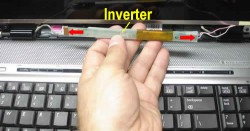Outsourcing laptop & cellphone repair: the benefits & tradeoffs.
Outsourcing can be a useful tool, or a business’s downfall. The success of outsourcing depends on its implementation. I’d like to discuss some of the pros and cons of outsourcing.
Outsourcing helps provide consistency in work quality.
Outsourcing can help a franchising business by providing consistency in experience. It is difficult to start a business in a niche industry and keep your customers happy. A mixture of establishing unique policies and specific expertise allows this to happen. Even after you’ve gone through the trouble of cherrypicking the right people, it’s going to take a lot of training to get them up to speed so they provide a high level of service. This is difficult to do with one location – as you franchise and build out 2, 5, 10, 100 locations – it becomes infinitely more difficult. As any business owner knows, finding good help is incredibly difficult. Even when a business does find good help, turnover rates can still damage their reputation while they are understaffed.
Outsourcing can provide this consistency. If each office in the franchise has service performed by a single contractor, you eliminate the hassle of training employees at each location to provide this level of service. Only one office, the outsourcee, will have to provide the level of service you desire, for every office in the franchise.
When you outsource service, all you must do in house is customer service. You may choose to outsource this as well, merely serving as a drop off & pick up depot that performs the final billing to the customer. A common scenario is outsourcing tech work, while keeping customer service in house. This has become increasingly common as work on modern laptops becomes more involved and difficult. You can have 50 stores and they will all provide the same level of service because they are utilizing one centralized service provider.
Outsourcing allows you to tackle high end challenges without training expense.
Let’s find an example. Five years ago, when the light went out on a screen, it required replacing a board the size of your middle finger. A high school dropout with minimal experience can be taught how to do this in under 20 minutes. Now, when the light goes out, there are 0402 and 24 pin QFN packages that must be replaced using advanced soldering skill. A repair I could teach my grandmother how to do has now become a repair the average experienced technician does not want to take on! This is still just as prevalent a problem in laptop repair as it was five years ago. People will still walk in wanting it done. What do we do?
You could hire a technician and teach him the advanced soldering skills. This may be time consuming and unfruitful, as he or she will eventually have to try their luck on a customer’s device, which they may or may not break – costing you money and headache. Even if the technician does learn the process, you cannot rely on their longevity. They may take that skill and go elsewhere, forcing you to repeat the painful process. The only true way to guarantee that someone knows what they are doing, is to have them DO it. Regardless of whether they are working on your devices or a customer’s, a newbie will eventually break something. The headache and bill associated will rest on you. Imagine repeating this process times 100 stores - and you’ll see why people like outsourcing.
As can be seen below, the left is something a 2 year old could unplug and plug back in. On the right - not so much!


Outsourcing jobs to a company more efficient at handling that specific job can save you money.
Let's say you are not specialized in a field. With experience, you are able to become more efficient. As this efficiency improves, your prices can go down as less mistakes are made, as work is performed quicker, as parts are obtained cheaper, as shortcuts make themselves known. Let's say a repair job requires a $15 part, and 3 hours of a technician's time. The first part is soldered improperly and rendered useless. The technician makes $18/hr - so three hours of his time is worth $54. Let's say it doesn't work at the end for some unforseen reason. You put $84 in, and do not have a solution. If an outsourced service provider can do this job in an hour for $40, be honest with yourself and realize you are better off outsourcing this job until you can reach their level of efficiency.
Outsourcing allows you to take on jobs beyond your capacity.
Retail businesses often hire seasonal employees, for the holidays. They know where their spikes are, and they hire temporary staff to handle these spikes. This is simple for a KMART or a JcPenney. Putting clothes on shelves is different than replacing screens on the new Macbook Air, or replacing small soldered components. You can get rid of the seasonal employee at these stores as soon as Christmas is over. However, technicians take time to train. By the time you have someone up to muster, your spike may be over. Also, unlike seasonal retail outlets, repair facilities do not know when their spikes will arrive! A simple solution is to have a hybrid of outsourcing, where work you cannot do within your specified timeframe is outsourced, while jobs you have the time to handle get done in houjse. You will make less profit off of the repair. This is much better than no profit when the customer comes in to take their machine back because it’s been 4 days and you haven’t fixed it yet.
Outsourcing can turn customer service and internal communication into a game of telephone.

We work in a tricky business. Let's take a plausible scenario.
A customer brings in a laptop with a busted screen. The customer service rep sends it to the outsourced repair center, who informs them the back cover holding the screen is coming unglued, requiring replacement as well. The repair center calls back to inform the outsourcer of the bad news, and the outsourcer then relays the information to the customer. The customer, irritated that the price change, asks if there are alternatives. "Can it be glued back together?" The customer service rep is not equipt to handle advanced followup questions without calling the service center back. He can say no, and the customer will ask why, but he won't have a real answer to give. He can say yes, which the repair center will say they cannot do. Or, he can say "I don't know" - the god's honest truth. However, at this point, the confidence is lost because he doesn't sound like he knows what he is doing.
You only get one or two chances to do this before they don't trust you at all. Let's say later on the wi-fi card appears to have gone bad. You call, they ask how this could happen, how you didn't notice it at first, is it not connecting at all or just bad signal, and you either have to call up the service center again to get an answer or just flat out lie. And these don't work.
How about another one!
A motherboard is liquid damaged, but still works. A customer brings it in and says it's been spill damaged, and may have a bad board. The outsourcer may not be a technician; he's just a customer service guy with minimal laptop repair know how. He hits the power button, it doesn't turn on. He figures the customer is correct, the logic board is bad, so he sends it off. What the outsourcer doesn't know, is that the computer worked - it WORKED! It was dropped off because the customer just wanted to make sure it wasn't damaged further. It wasn't turning on because of a dead battery, and the customer service person didn't check it on a charger. Not being a technician, he simply went ahead with the customer's diagnosis.
In this case, the board is given to the outsourced repair center. They don't even it look at it for a while because they give a longer turnaround time. The customer comes into the store two days later, because he simply expected it to be a quick cleaning, wondering why it isn't done. He asks for it back since he knew it worked - it simply had a dead battery. The customer didn't tell the store rep he knew the battery was dead at the time. The customer service rep cannot give the laptop back because the board is at another location. Busted!
Further, outsourcing takes away the ability for instant turnaround, giving local competitors a chance to shoot ahead. The ability to tell someone "we'll do it in a day" for something difficult, or "well finish it in a half hour" for something simple, in our experience, is a competitive game changer that is only possible with the most stringent outsourcing.
In conclusion!
Outsourcing can be a great tool if managed properly. Outsourcing everything is not always the answer. Outsourcing nothing is not necessarily the answer. Our company takes pride in taking on jobs that would typically be outsourced. However, at the same time, we are not going to beat our heads against the wall and spend more money to do the same job that someone else can do faster, cheaper, and better.
We feel outsourcing is most successful if you keep open lines of communication with the outsourced service provider. Meaning, ask questions - lots of them. Get details, as many as you can, on any problem that comes up - so you are ready to communicate them to a customer, and handle the questions you are going to be asked. Minimize the amount of a job that must be outsourced, so that you remain more in control of the job. For example, you can't accuse the outsourcee of scratching a phone if you send them the motherboard by itself. Inspect the work done on a regular basis so you can see if there are quality issues that may come back and bite you in the ass later.
Leave a Reply


Address
Austin, TX 78705
(347) 552-2258
OPENING HOURS
Monday-Friday – 11 AM to 7 PM
